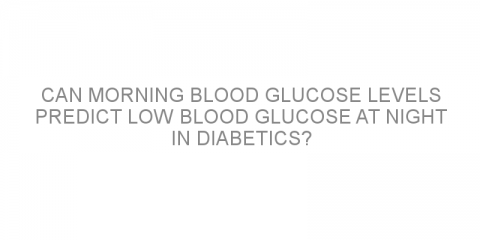In a nutshell This study examined the risk of low blood glucose in type 1 diabetics treated with insulin degludec. Some background Patients with type 1 diabetes (T1D) must inject rapid-acting insulin and long-acting insulin each day. Long-acting insulin maintains blood glucose levels at a steady level. Insulin glargine (Lantus) is a...
Read MoreLibrary Item Posts on Medivizor
Afatinib in lung cancer patients with uncommon EGFR mutations
In a nutshell The authors aimed to determine the effect of afatinib (Gilotrif) in lung cancer patients with advanced (cancer has spread), uncommon epidermal growth factor receptor (EGFR) mutations. Some background EGFR mutations are found in 15% of lung cancer patients. Certain EGFR mutations can predict whether drugs, such as tyrosine...
Read MoreErlotinib treatment following lung cancer progression
In a nutshell The authors aimed to determine the effect of erlotinib (Tarceva) in delaying treatment change in patients with progressive lung cancers with and without epidermal growth factor receptor (EGFR) mutations (changes to the cell). Some background Erlotinib is a biological therapy (drug used to stimulate or restore the body's...
Read MorePsychological effects of prostate cancer hormone therapy
In a nutshell The authors determined the psychological effect of hormone therapy (androgen-deprivation therapy) on men with prostate cancer and their partners. Some background Hormone therapy is a common treatment used in prostate cancer (PC). It targets the male sex hormones active in prostate cancer, such as testosterone. Testosterone controls...
Read MoreRemission of rheumatoid arthritis following abatacept treatment
In a nutshell The authors evaluated the effect of abatacept (Orencia) plus methotrexate (Trexall) in reducing the symptoms (remission) of early rheumatoid arthritis. Some background In rheumatoid arthritis (RA), the immune system begins attacking healthy tissues the way it normally attacks viruses or bacteria. This can cause inflammation,...
Read MoreSurvival and recurrence in scalp melanoma
In a nutshell The authors analyzed the patterns of survival and recurrence in patients with scalp (the skin covering the head but not the face) melanoma. Some background Head and neck skin melanomas occur in less than 20% of all cases. It is associated with worse outcome than melanoma of other body parts. Scalp melanoma is part of head and neck...
Read MoreAge can affect treatment outcome in hypertension
In a nutshell This study examined the effectiveness of olmesartan (Benicar) combined with either a calcium channel blocker (CCB), or a diuretic, on blood pressure variability in elderly and very elderly hypertensive patients. The authors concluded that olmesartan combined with a CCB led to decreased blood pressure variability only in very elderly...
Read MoreA new treatment option for progressive hormone receptor-positive breast cancer
In a nutshell This study examined the effectiveness of palbociclib (Ibrance) in the treatment of hormone receptor-positive breast cancer patients. The authors found that palbociclib treatment increased progression free survival. Some background Major treatment options for hormone receptor-positive (HR+, dependent on the hormones estrogen and/or...
Read MoreEverything in moderation: alcohol and the risk of stroke
In a nutshell This study examined the long-term association between alcohol consumption and the risk of stroke. The authors concluded that heavy alcohol consumption increases the risk of stroke. Some background Because stroke is a major cause of both disability and mortality, it is important to understand what risk factors are involved. Some risk...
Read MoreRelieving BPH symptoms with a WAVE
In a nutshell This study investigated the effects of WAVE (Water Vapor Energy Ablation) – a new procedure to relieve urinary symptoms due to benign prostate hyperplasia (BPH). WAVE was found to be a simple, effective and safe method of treating BPH symptoms. Some background Benign prostatic hyperplasia may lead to troublesome urinary...
Read MoreCan morning blood glucose levels predict low blood glucose at night in diabetics?
In a nutshell This study examined whether glucose levels can predict night-time hypoglycaemia in type 1 diabetics. Some background Lower blood glucose (sugar) levels in patients with type 1 diabetes can reduce the risk of developing complications. However, patients then have a higher risk of experiencing hypoglycemia (dangerously low...
Read MoreDoes canagliflozin increase the risk of bone fractures in type 2 diabetics?
In a nutshell This study examined the effects of canagliflozin on the risk of bone fractures in type 2 diabetic patients. Some background Patients with type 2 diabetes (T2D) have an increased risk of bone fractures. Many factors are thought to be responsible for the higher risk. It is believed that high blood glucose levels can increase...
Read More













